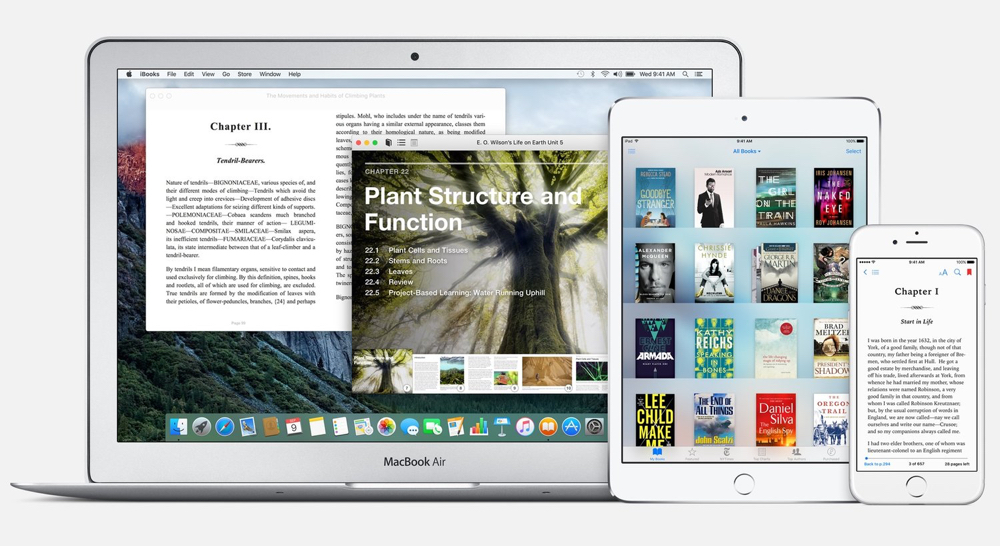In a June 19 article for The MacObserver, Andrew Orr asked Apple to not give up on iBooks in iOS 11. I’ll second that and add iBooks Author to the mix.
iBooks is a free ebook app that allows you to read publications purchased at the iBook Store. iBooks Author lets you create iBooks textbooks (as well as other types of books) for the iPad and Mac.
Orr was a little distressed to see no mention of iBooks at the recent Apple Worldwide Developer Conference. He’d like to see Apple make it easier to self-publish books in iTunes, offer monthly iBooks subscriptions, and more.
iBooks Author hasn’t received an update since January’s 2.4.1 security update, and hasn’t received a feature update since last September’s version 2.4. And yet, the software is used as much as it ever was, including in Apple’s own new coding curriculum for schools.

Apple would be unwise to give up on the ebook market now. Over the next two years, ebooks are set to surpass print in the U.S., according to a PricewaterhouseCoopers study published by the Economist.
Today in the U.S, the e-book industry is worth over US$5.7 billion, while print is worth approximately $10 billion. By 2018, print and e-books will be worth $7.9 and $8.7 billion respectively, according to the study.
According to a 2014 DigitalBookWorld report — the most recent I could find — Apple is now either the second or third largest ebook retailer in the U.S. It’s a neck-and-neck race with Barnes & Noble (Amazon is number one).
What’s more, by 2017 the world e-reader market is expected to achieve unit shipments of nearly 54 million a year, according to a new research report available from the Companies and Markets research group. And the iPad certainly counts as an ebook reader, so perhaps that will help improve moribund sales of the tablet.
A separate study, by Strategy Analytics, says the ebook market will more than double by 2020. Increasing e-reading device penetration, more readily available content, new business models, and adoption in China will see the market’s revenue top $16 billion in the next eight years, the research group adds.
“A clear trend in recent years has been the shift of e-reading from desktop computers to mobile, in particular to reading on smartphones and tablets. At the same time, more readers are choosing multi-purpose tablets over dedicated e-readers as their primary ebook reading device,” says David MacQueen, executive director, Apps and Media, Strategy Analytics.
All in all, the research group expects ebook reading penetration to increase from less than 10% of the total population in 2013 to close to 25% in 2020. China, the biggest smartphone market in the world, has just begun to see accelerated growth in the ebook market.
“From the content perspective, more publishers are releasing books simultaneously in digital format and print format. Meanwhile, an increasing number of new and established authors are opting for digital self-publishing only, made possible by ebook service platforms, which brings them closer to the readers,” says Wei Shi, analyst of Wireless Media Strategies (WMS), Strategy Analytics. “Another nascent but significant development in the ebook market is the subscription based services launched by more platforms, including Amazon.”
In essence this is similar to how Spotify and Pandora have evolved the digital music market beyond downloads. Strategy Analytics expects to see subscription service gaining more momentum in the second half of this decade, and contributing to close to a fifth of the total market by 2020.
So it seems Andrew Orr is onto something when he hopes for easier self-publishing and iBookStore subscriptions. Apple?
